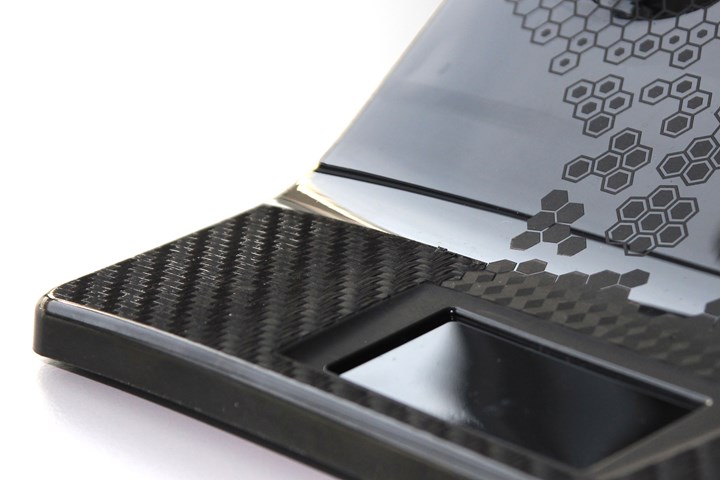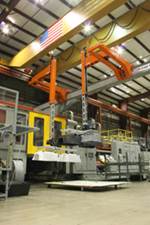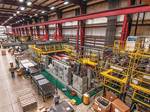Engel Announces Virtual Structural Foam Molding Conference
Free, three-day foammelt conference shifts to a virtual format, providing info on all aspects of structural foam molding.
Running Nov. 17-19 in German and English, Engel has announced a free, virtual version of its foammelt event, providing information on structural foam molding that Engel says is geared towards plastics processors and mold manufacturers, as well as developers and design engineers.
The range of topics presented in the virtual event will cover the entire process, from foammelt compatible component development and design, through materials and injection molding best practices, to surface quality.
Over three days, Engel says three different blocks of topics will be presented in four practice-oriented keynotes each, with German in the morning and in English in the afternoon. Engel’s Michael Fischer, head of business development technology, and Wolfgang Kienzl, product management technologies, will serve as hosts for the interactive event. Questions from participants will be answered by the speakers directly after the lectures.
The conference’s first day is dedicated to the technology basics and advantages of foaming. Besides comparing physical and chemical foaming, participants will see a presentation on the lightweight engineering and sustainability aspects derived from combining foaming and co-injection. At the end of the first day, Trexel will offer insights into the future development of its physical MuCell process.
Day two will focus on product development, mold engineering and quality assurance, discussing which components are suitable for structural foam molding and why tooling is crucial for the best part surface. Simulation for process optimization and new developments in inline measuring methods will also be covered.
The third day will take an in-depth look at implementation and practical experience with structural foam molding. Material supplier Borealis will present on special granulates for PP structural foam molding, while ProTec Polymer Processing will demonstrate the SOMOS Perfoamer process, in which the plastic granulate is enriched with CO2 in an autoclave before further processing. Engel and the Chase Competence Center Linz will discuss research on structural foam molding and the future of foammelt.

Components produced using structural foam molding can be 20% lighter than those produced using traditional injection molding.
Related Content
-
Got Streaks or Black Specs? Here’s How to Find and Fix Them
Determining the source of streaking or contamination in your molded parts is a critical step in perfecting your purging procedures ultimately saving you time and money.
-
Understanding the Effect of Pressure Losses on Injection Molded Parts
The compressibility of plastics as a class of materials means the pressure punched into the machine control and the pressure the melt experiences at the end of fill within the mold will be very different. What does this difference mean for process consistency and part quality?
-
A Systematic Approach to Process Development
The path to a no-baby-sitting injection molding process is paved with data and can be found by following certain steps.















